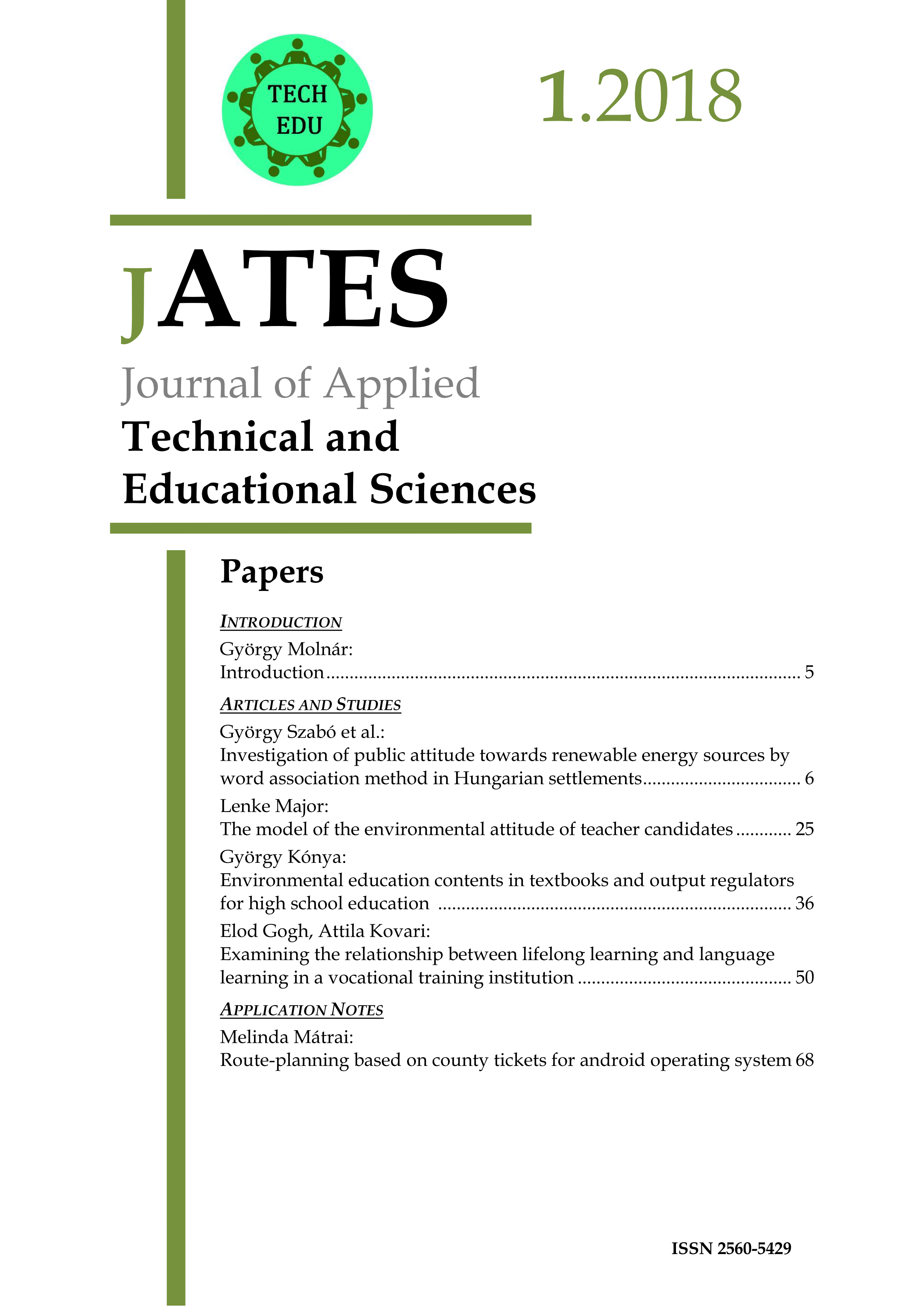Examining the relationship between lifelong learning and language learning in a vocational training institution
DOI:
https://doi.org/10.24368/jates.v8i1.27Keywords:
lifelong learning; learning motivations; learning factors; research in vocational institute; diploma vs. vocational school (National Qualifications Registered study)Abstract
Lifelong learning as a concept which does not in need explanation because of its triviality. There have been many changes in education over the past decade. In the learning process participated people’s environment is fundamentally influenced by the many external factors. By transforming vocational training and returning to dual training, not only the professional content was changed but also the attitudes of the participants could change with new or other learning goals and motivations. At present, adults also have many opportunities to study free of charge or acquire a diploma. The attitudes of today's high school students to learning have undoubtedly changed over the past 20 years. How much do young people today learn? What are their plans for the future and how do they see their prosperity after school?
In this research examines and evaluates opinions in the context of lifelong learning in different age groups. In each group, first of all has been researched common learning motivating questions but the participated people were asked about most typical learning features in their age group too. The present study is part of a complex research and links language learning and lifelong learning. Because of its utmost timeliness and usefulness, measuring language learning habits is one of the best getting results about self-education skills and attitudes towards learning.
The research was carried out with the participation of the students of the Kossuth Lajos Bilingual Secondary School of Technology in Budapest. Statistical methods and the SPSS software were used to process the results. Based on the results obtained, there are differences between some factors related to lifelong learning.
Downloads
Published
How to Cite
Issue
Section
License
The submitting author warrants that the submission is original and that she/he is the author of the submission
together with the named co-authors; to the extend the submission incorporates text passages, figures, data or
other material from the work of others, the submitting author has obtained any necessary permission.
Articles in this journal are published under the Creative Commons Attribution Licence (CC-BY), the author retains
the copyright. By submitting an article the author grants to this journal the non-exclusive right to publish it
(e.g., post it to an institutional repository or publish it in a book).









